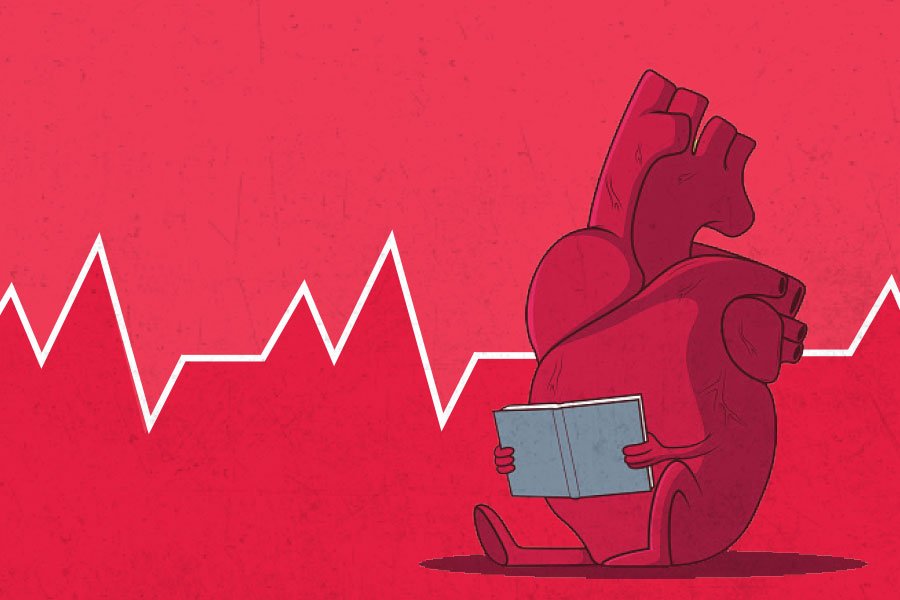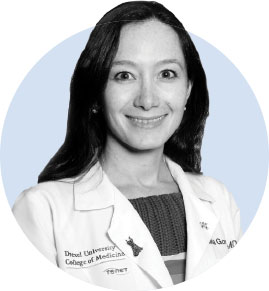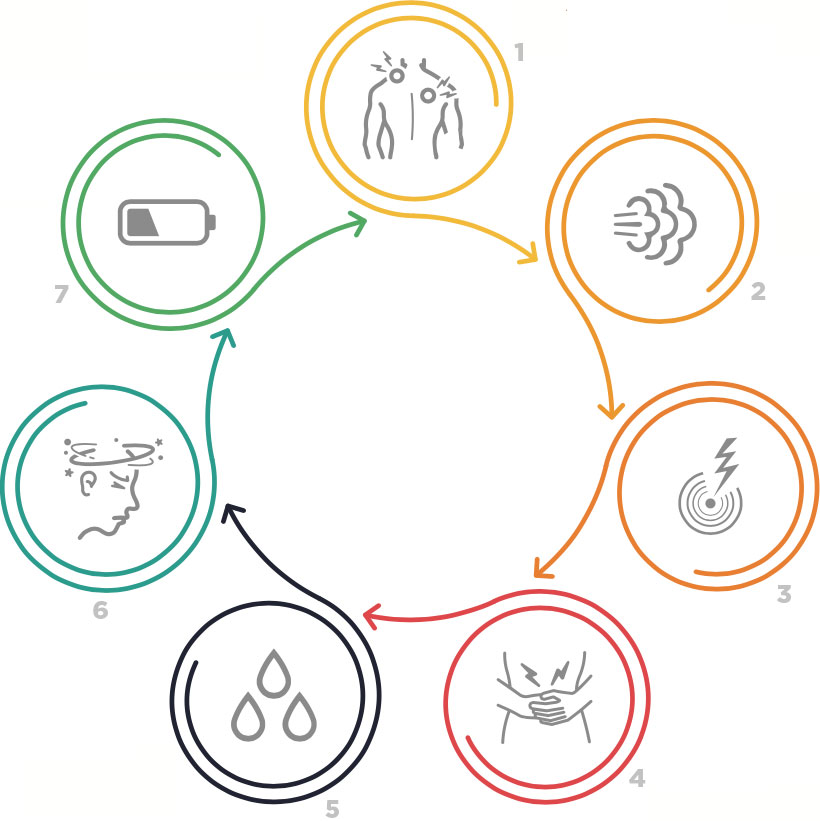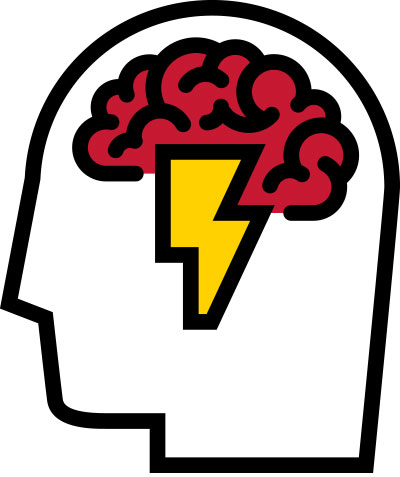The Questions You Are Too Shy to Ask Your Cardiologist
Dr. Paulina Gorodin Kiliddar answers all our questions.

 Have a question about your heart but worried it’s too weird? Don’t be shy, says Drexel cardiologist Dr. Paulina Gorodin Kiliddar.
Have a question about your heart but worried it’s too weird? Don’t be shy, says Drexel cardiologist Dr. Paulina Gorodin Kiliddar.
“We’ve made great strides with breast cancer thanks to increased screening and open discussion, but heart disease kills six times more women than breast cancer, and I think there are still questions not being asked,” says Dr. Kiliddar, who addresses some of those “weird” questions that might be on your mind.
Can thin women have heart disease? “Yes, because there are genetic factors of heart disease that have nothing to do with your body weight or size.”
Does menopause affect the heart? “Estrogen is a protective hormone, so your risk of heart disease increases when you stop producing it.”
Should I be concerned about heart disease if I have diabetes? “Yes, diabetes is a known risk factor for heart disease.”
Is it OK to have sex after a heart attack? “If you had an ‘uncomplicated’ heart attack and you’re back to your normal routine without any problems, it’s OK to have sex. But, it’s a good idea to discuss timing with your cardiologist.”
I feel tired and have cold sweats. Should I see a doctor? “Definitely. Men and women often have different heart attack symptoms. It may be nothing, but it’s better to make sure.”
Where To Begin
If you’re concerned about your heart, the best place to start is with your primary care doctor. Drexel family physician Dr. Annette Gadegbeku takes you through the steps of an office visit and talks about how she partners with cardiologists to keep you healthy:
 “Your family physician knows your health better than anyone. If a heart problem is suspected, I’ll do a risk assessment and perform an EKG. From there, I may order a stress test.”
“Your family physician knows your health better than anyone. If a heart problem is suspected, I’ll do a risk assessment and perform an EKG. From there, I may order a stress test.”
“If something shows up on your test results, or you have a history of heart disease in your family, I’ll refer you to a cardiologist for further evaluation.”
“Your family doctor and cardiologist should work as a team. At Drexel, we frequently communicate with each other through a patient’s electronic medical record. It’s very seamless for patients.”
“After your cardiology appointment, I’ll schedule a follow-up with you to discuss the diagnosis and your cardiologist’s recommendations so that we can form a plan to implement them.”
Am I Having a Heart Attack?
Thanks to TV and movies, we all know how a heart attack looks, right? The man gasps, clutches his chest and falls to his knees in horrible pain. Problem is, women are just as likely to have a heart attack as men, but their symptoms may be far different:

- Muscle or joint discomfort that may feel like indigestion, heartburn, fullness or squeezing.
- Shortness of breath that comes on suddenly and makes you feel like you’ve run up a flight of stairs.
- Pain in one or both arms that can’t be explained by another injury or activity.
- Nausea or vomiting that has nothing to do with what you ate or whether you’re sick
- Unusually heavy sweating that doesn’t resemble the hot flashes associated with menopause
- Lightheadedness or dizziness that may be accompanied by other non-typical symptoms
- Unusual fatigue that is unrelated to exercise and has you feeling totally wiped out
Know How to Spot a Stroke FAST
It could save a life-possibly yours.

Face drooping Does one side of the face droop or is it numb?
Arm Weakness Is one arm weak or numb? Ask the person to raise both arms. Does one arm drift downward?
Speech Difficulty Is speech slurred, is he or she unable to speak or hard to understand? Ask the person to repeat a simple sentence. Is the sentence repeated correctly?
Time to call 9-1-1 If the person shows any of these symptoms, even if the symptoms go away, call 9-1-1 and get him or her to the hospital immediately.